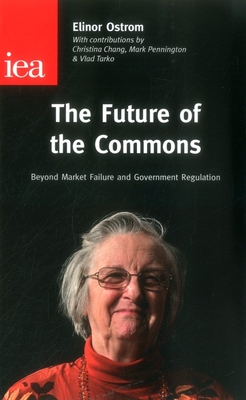Traditional economic models of how to manage environmental problems relating to renewable natural resources, such as fisheries, have tended to recommend either government regulation or privatisation and the explicit definition of property rights. These traditional models ignore the practical reality of natural resource management. Many communities are able to spontaneously develop their own approaches to managing such common-pool resources. In the words of Mark Pennington: '[Professor Ostrom's] book Governing the Commons is a superb testament to the understanding that can be gained when economists observe in close-up detail how people craft arrangements to solve problems in ways often beyond the imagination of textbook theorists.' In particular, communities are often able to find stable and effective ways to define the boundaries of a common-pool resource, define the rules for its use and effectively enforce those rules. The effective management of a natural resource often requires 'polycentric' systems of governance where various entities have some role in the process. Government may play a role in some circumstances, perhaps by providing information to resource users or by assisting enforcement processes through court systems. Elinor Ostrom's work in this field, for which she won the Nobel Prize in economics in 2009, was grounded in the detailed empirical study of how communities managed common-pool resources in practice. It is essential that we avoid the 'panacea problem'. There is no correct way to manage common-pool resources that will always be effective. Different ways of managing resources will be appropriate in different contexts - for example within different cultures or where there are different physical characteristics of a natural resource. Nevertheless, there are principles that we can draw from the detailed study of the salient features of different cases to help us understand how different common-pool resources might be best managed; which rules systems and systems of organisation have the best chance of success or failure; and so on. Elinor Ostrom's approach has been praised by the left, who often see it as being opposed to free-market privatisation initiatives. In fact, her approach sits firmly within the classical liberal tradition of political economy. She observes communities freely choosing their own mechanisms to manage natural resource problems without government coercion or planning. In developing a viable approach to the managemen











